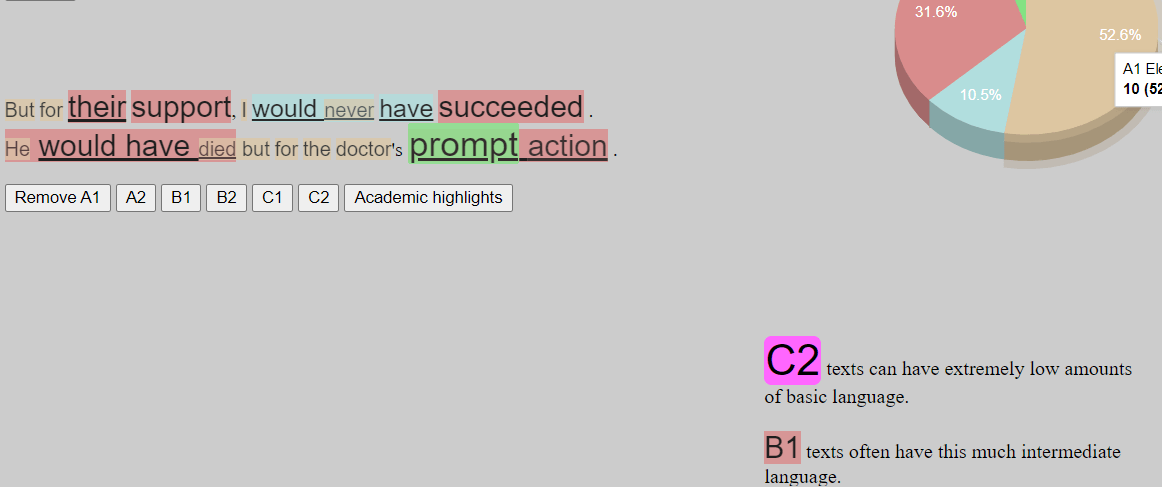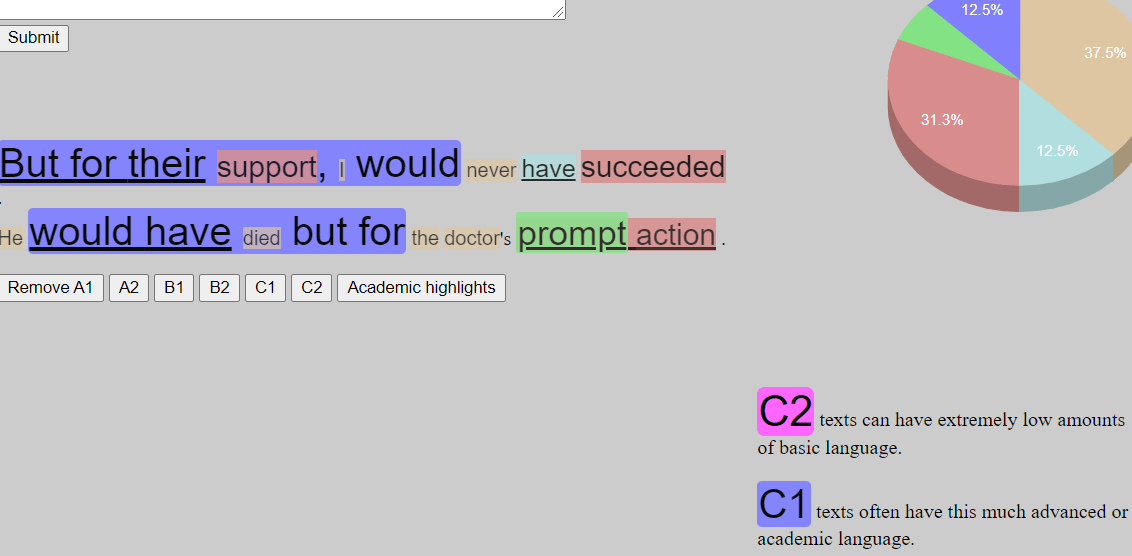We know that BUT FOR + a NOUN phrase means either except for or if it were not for. At C1, this structure can be combined with a ‘would have clause’ so it is similar to a past conditional. Altogether this construction means “if it wasn’t for this thing that happened, then this other thing was not possible to happen.” In other words, it introduces the reason why something didn’t happen.
Here’s a student example of ‘but for conditional’:
But for her advice in a lot of situations,
I would not have had a wonderful childhood.
PELIC: Japanese Female level 5 grammar class.
*Her grandmother gave her advice, SO She had a wonderful childhood. The writer imagines the opposite past situation and gives the reason why she DID have a wonderful childhood = the advice.
Here are expert examples:
but for fear of the next?
But for you, I would be there now.
I wouldn’t have let you in here,
on the phone earlier.
77 GSE C1
- ‘but for’ + noun phrase, ‘would have’ clause (third conditional)
- replace past conditionals with ‘but for’ in formal statements.
RESEARCH NOTES:
A search in the MOVIE corpus for collocates of ‘but for‘ does not locate any conditional structures:
1 SOME 302
2 REASON 263 *The most common use of ‘but for‘ is not conditional. For example:
3 SAKE 179
have you ever been unfaithful?
4 MOST 86
Well, but for the most part, that‘s true.
5 MOMENT 71
6 GRACE 58
7 PART 58
8 MYSELF 54
9 REASONS 44
10 RECORD 29
beaming new medicines across the globe.
Why will the English Grammar Profiler now start to incorporate the GSE alongside the EGP?
The following two images show the difference between including a GSE grammar point to level prediction. In the first, ‘but for‘ is highlighted as A1 and in the second C1, the ‘would’ verb phrase changed from A2 or B1 to C1. Lifting the overall second part prediction from B1 to C1. This structure does not exist in the EGP or EVP which might mean it is actually higher than C2.


